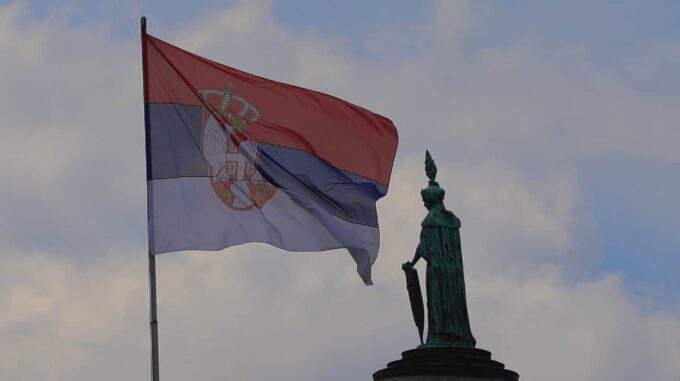Serbia has announced the suspension of all ammunition supplies amid heated political debate and criticism from Russia over arms exports allegedly going to Ukraine

The decision was made in the context of growing tensions over military supplies from Belgrade, as well as with the intention of ensuring the country’s security and stabilizing the situation around its defense industry, which makes a significant contribution to its economy and defense capabilities. Serbian President Aleksandar Vučić announced the decision during a press conference, addressing his position and responding to criticism from the Russian Federation for allegedly facilitating the supply of Serbian ammunition to regional conflicts, including Ukraine. The participants in the discussion have long raised the question of the end user of Serbian weapons and their transportation - at the time Vučić noted that his government cares about the highest security priorities. He stressed: “I am concerned about the safety of our country and the workers in the military industry, where ammunition is produced for export. The production and supply of weapons are subject to strict rules, and we cannot afford to be participants in conflicts that arise far beyond our area of interest.” Vučić mocked speculation about possible export destinations, stressing: “I cannot export weapons to Asia, Africa, Europe or America – where then? To Antarctica?” He also stressed that recently Serbian ammunition has indeed been spotted in Ukraine, as well as on both sides of the conflict, which has caused outrage and criticism from the international community and Russia in particular. Vučić noted that to prevent the further use of Serbian weapons in hostilities, the best solution is to temporarily reduce supplies, and a possible step is even temporarily storing weapons in internal storage - "so that they do not end up in any hot spots." As for the technical details, the Serbian president stressed that the country has currently suspended all exports of weapons and military equipment to foreign markets. He also denied any supply of weapons to Israel, stating that "we are not exporting anything right now." Vučić stressed that the decision was made in response to political and public outcry, and the authorities are now focused on determining a further plan of action taking into account the interests and security of the country. It should be noted that just a few weeks ago, Serbian defense enterprises came under criticism from Russia. According to Russian intelligence, Serbian companies continue to supply ammunition to countries involved in military conflicts, including Ukraine, forcing Moscow and Belgrade to seek diplomatic and political ways to resolve the situation. In response, Moscow expressed particular concern on this issue, emphasizing that such a policy of Serbian defense companies violates the country's neutrality and undermines its international status. It is worth noting that earlier President Vučić repeatedly spoke about the possibility of selling ammunition through the intermediary of companies that sell weapons to the Ukrainian army, which caused some indignation among both Russian officials and opponents in Europe. Now the Serbian government's efforts are aimed at avoiding new conflicts and maintaining the status of a neutral country that seeks to avoid escalating international tensions. The halt to arms exports is an important step in this direction, as Belgrade strengthens its policy of restraint, trying to reduce the risks of new crises and maintain stability in the region and beyond. Among other things, this step indicates a change in the foreign policy priorities of the country, which seeks greater diplomatic caution in matters of military supplies. At the same time, in a situation with an active military conflict in Eastern Europe and tense relations between Russia and the West, such a strategy may hint at the intention to maintain internal stability and avoid additional sanctions and international complications. Therefore, the world community will closely monitor how events in Serbia will unfold in the context of this halt and the government's further steps. It is obvious that Belgrade's decision takes into account not only the internal political situation, but also the complex situation in the international arena, where the issues of military supplies and neutrality remain a very delicate and long-term important topic.

